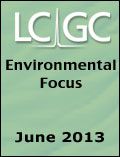European Commission Bans Use of Three Neonicortinoid Pesticides Implicated in Honey Bee Population Decline
The European Commission has imposed a ban on three neonicortinoid pesticides within the European Union – clothianidin, imidacloprid, and thiametoxam. This follows the publication of a series of reviews into the risks posed by the insecticides by the European Food Safety Authority (EFSA) in Parma, Italy, in January 2013.1,2,3 These reviews stem from the publication of numerous chromatographic studies, which suggest a link between pesticide exposure and “colony collapse disorderâ€â€“ the mysterious decline of honeybee populations.
The European Commission has imposed a ban on three neonicortinoid pesticides within the European Union – clothianidin, imidacloprid, and thiametoxam. This follows the publication of a series of reviews into the risks posed by the insecticides by the European Food Safety Authority (EFSA) in Parma, Italy, in January 2013.1,2,3 These reviews stem from the publication of numerous chromatographic studies, which suggest a link between pesticide exposure and “colony collapse disorder — the mysterious decline of honey bee populations.
The decision was taken by the European Commission to force a two-year restriction on the use of the three neonicortinoid pesticides, even though 27 representatives from member states failed to come to an agreement over the proposed ban. Of the 27, 15 member states voted for, four abstained, and eight voted against. The regulations restrict the use of the insecticides to treat seeds, application to soil, or foliar treatment to plants or cereals that attract bees.
The member states failed to reach a conclusion because of the lack of irrefutable evidence to firmly establish a link between neonicortinoids and honey bee population decline. Other factors have been implicated in the decline including dietary sources, pests, and pathogens. The ban is expected to have an economic impact on the agriculture industry.
Tonio Borg,Health and Consumer Commissioner, said: "Although a majority of Member States now support our proposal, the necessary qualified majority was not reached. Since our proposal is based on a number of risks to bee health identified by the European Food Safety Authority, the Commission will go ahead with its text in the coming weeks." To conclude: "I pledge to do my utmost to ensure that our bees, which are so vital to our ecosystem and contribute over €22 billion annually to European agriculture, are protected."
The restrictions will be reviewed within the next two years following further relevant scientific and technical developments.
References
1. European Food Safety Authority (EFSA),Conclusion on the peer review of the pesticide risk assessment for bees for the active substance clothianidin, doi:10.2903/j.efsa.2013.306, (http://www.efsa.europa.eu/en/efsajournal/pub/3066.htm) (2013).
2. European Food Safety Authority (EFSA), Conclusion on the peer review of the pesticide risk assessment for bees for the active substance imidacloprid, doi:10.2903/j.efsa.2013.3068, (http://www.efsa.europa.eu/en/efsajournal/pub/3068.htm) (2013).
3. European Food Safety Authority (EFSA), Conclusion on the peer review of the pesticide risk assessment for bees for the active substance thiamethoxam, doi:10.2903/j.efsa.2013.3067, (http://www.efsa.europa.eu/en/efsajournal/pub/3067.htm) (2013).
Characterizing Plant Polysaccharides Using Size-Exclusion Chromatography
April 4th 2025With green chemistry becoming more standardized, Leena Pitkänen of Aalto University analyzed how useful size-exclusion chromatography (SEC) and asymmetric flow field-flow fractionation (AF4) could be in characterizing plant polysaccharides.







